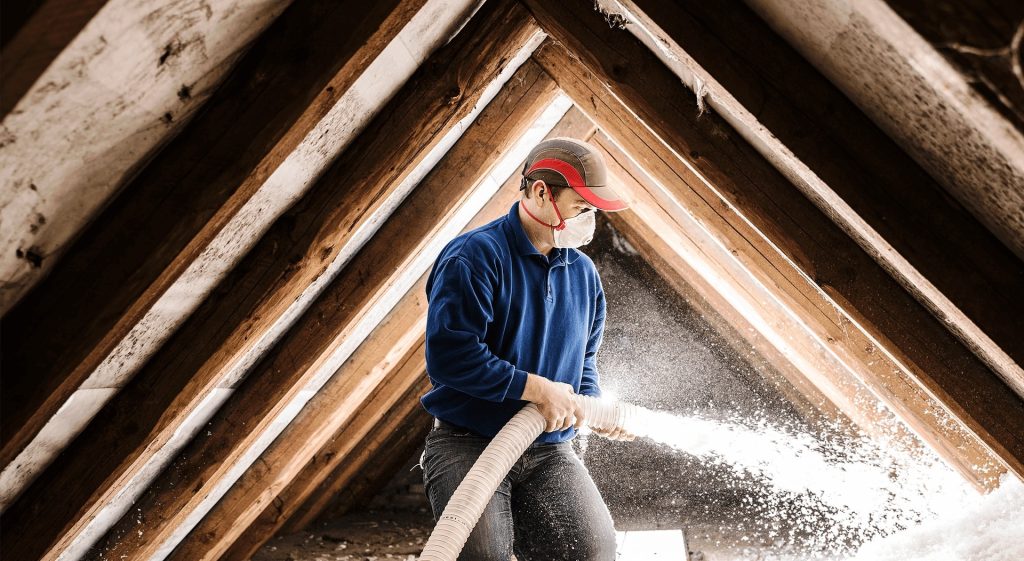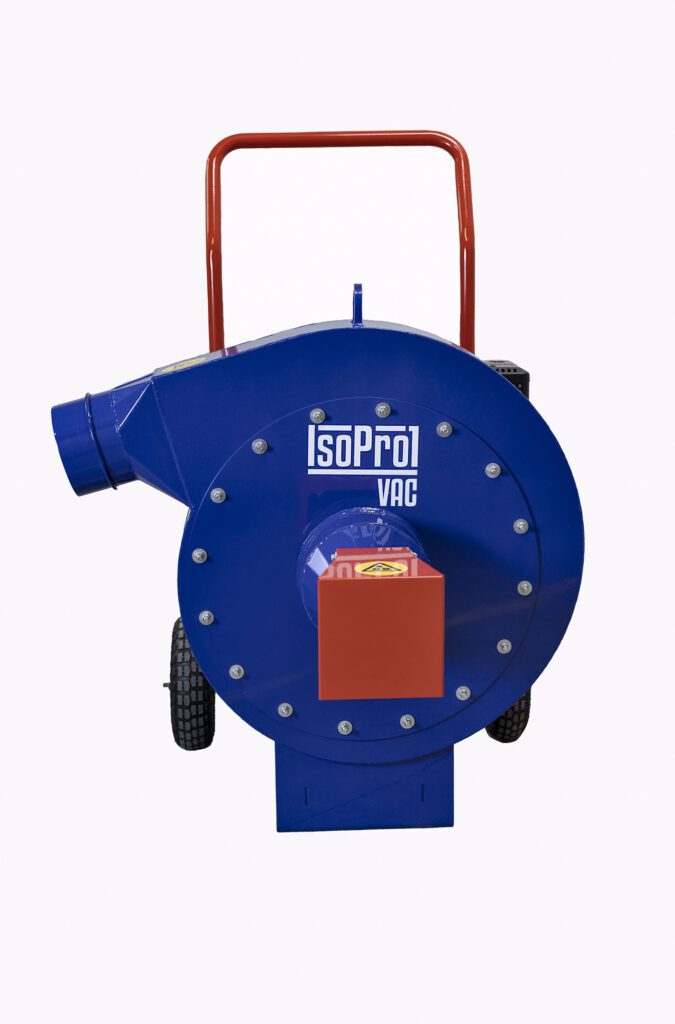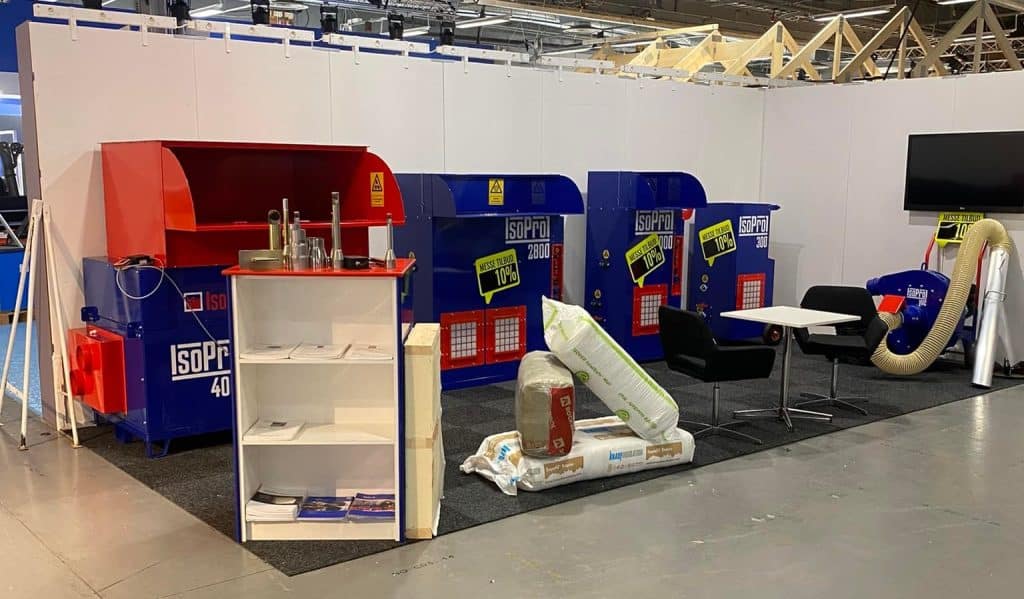Carrying out spray insulation with loose fill: Technical guide for professionals
Spray-on loose-fill insulation is a specific technique that combines the flexibility of loose-fill insulation with the precise application method found in spray-on insulation. This method is ideal for insulating complex cavities and places where traditional insulation methods may not be as effective. In this guide aimed at professionals in the construction industry, we will examine how spray insulation with loose fill is carried out from start to finish.


Lars Christiansen
Director of Isoleringsmaskinen A/S
31.09-2023

Our vacuum machine for removing insulation and building material is among the best on the market.
The preparation phase
Project analysis
First of all, the scope of the project must be assessed, including the type of building, the extent of the insulation work and the specific materials to be used.
Before the actual installation begins, the exact area to be insulated must be measured and marked to ensure even distribution of the material.
Removal of old insulation
In projects where insulation must be replaced, old insulation must be removed. This can be the division of insulation boards and their disposal, as well as the removal of other building material. The machine is designed for quick and safe removal of insulation granules, insulation batts, Leca and construction waste from ceilings, floors, partitions and cavity walls etc.
With our IsoPro1-Vac vacuum cleaner, you get a professional vacuum cleaner that can handle the suction and make disposal and cleaning easier for you and your company.
Risk assessment
Conduct a thorough assessment of potential hazards in the work area, including accessibility, presence of electrical installations, and ventilation.
Preparation of the work area
The work area must be free of dust and dirt, and any moisture problems must be resolved before work begins.
Selection of equipment and materials
Blower
At Isoleringsmaskinen, we have different models of insulation machines with blowers.
From our compact machines on wheels: IsoPro1 300 for the small tasks IsoPro1 1000 for the busy craftsman and larger ceiling jobs on houses. For our large machines that can be lifted with a truck or pallet jack: IsoPro1 2800 for the professional who needs 2 fans and IsoPro1 4000 for large contractor tasks, with 1 fan, with enormous power.
Loose fill material
The type of loose fill will depend on several factors, including the desired R-value, budget and any fire-related considerations. Our machines can handle all types of materials in different quantities per hour, depending on the size of the machine.
Personal Protective Equipment (PPE)
Full PPE including respirator, goggles and gloves is mandatory, for proper protection of employees.

The execution phase
Prepare the Blower
Fill the blower's container with the selected loose fill material. Check that all settings on the machine are correct. Briefly test whether the exhaust works and blows the material properly.
Application of loose filler
Using a long hose connected to the blower, you begin to inject the loose fill material into the prepared cavities. It is important to move the hose evenly to ensure uniform distribution.
Degree of density
Pay attention to the density of the material during application. Too low a density can compromise the effectiveness of the insulation, while too high a density can lead to waste and unnecessary costs.
Control
Continuous quality control during the task is necessary to ensure that the loose fill reaches all necessary areas and has the right degree of density
Final Work and Quality Control
Inspection
After work is completed, the insulated area must be inspected to ensure complete and even coverage.
Documentation
Collect all necessary data, such as materials used, quantities and any challenges, in a report for future reference.
Final Cleaning
Be sure to remove all residual materials and debris from the work area in accordance with safety and environmental regulations.
Security audit
After the project is completed, it is a good idea to review the entire process to identify any areas where security protocols can be improved for future projects.
Spray insulation with loose fill is a technique that requires precision, care and in-depth understanding of both materials and equipment. This guide aims to give professionals an overview of the many aspects involved in this type of insulation work. Correct execution and strict safety measures are essential to ensure a successful result that meets all technical and safety standards.
Are you still in doubt about something?
Still stuck with a question? Then you are very welcome to contact us by phone: +45 31 36 62 86, or send an email to iso@isoleringsmaskinen.dk
You can also fill out our form by clicking the button below.
